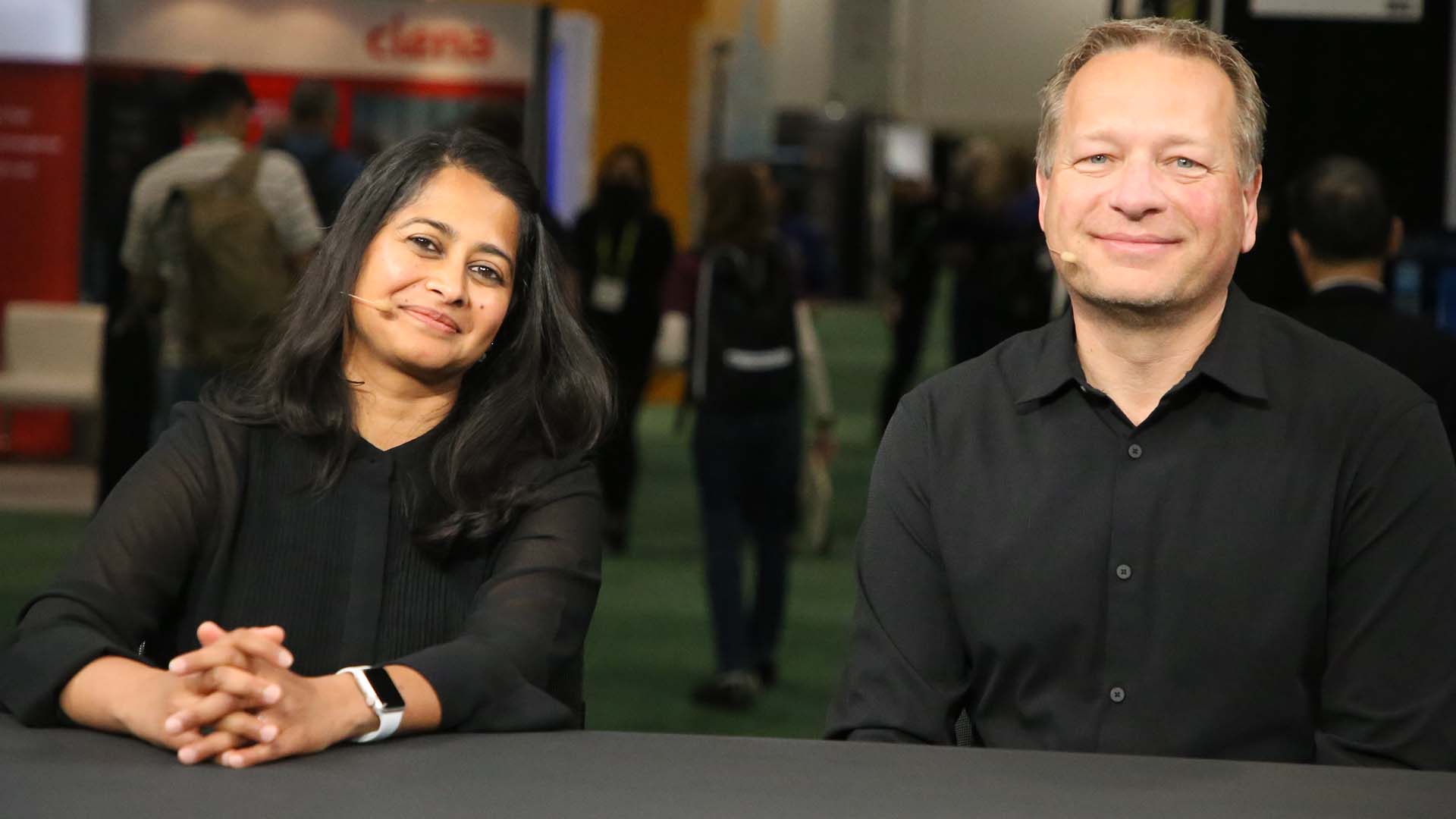 INFRA
INFRA
 INFRA
INFRA
 INFRA
INFRA
The high-performance computing market is booming at over $35 billion in annual revenue. Fueled by the ongoing wave of new market developments, that number should soar as the decade’s end approaches.
There is a lingering problem though: HPC infrastructures and operations need power and generate lots of heat. In response, companies are developing ingenious solutions to keep power consumption at sustainable levels.
“One of the biggest trends that we’re seeing in the industry right now is that the power needs are going up significantly,” said Shreya Shah (pictured, left), senior product manager of AI and HPC at Dell Technologies Inc. “This is primarily because of TDPs, or thermally dissipated power, for silicon that is exploding. When we say silicon, we’re talking about CPUs, we’re talking about GPUs.”
Shah and David King (right), co-founder, executive director and chief revenue officer at Denvr Dataworks Corp., spoke with theCUBE industry analysts Lisa Martin and David Nicholson at SC23, during an exclusive broadcast on theCUBE, SiliconANGLE Media’s livestreaming studio. They discussed seismic shifts in computational power needs and the challenges posed by the escalating thermally dissipated power of silicon components, particularly CPUs and GPUs. (* Disclosure below.)
The industry is witnessing a spectrum of power requirements, from single-digit kilowatt per rack to over 100 kilowatts per rack. This surge is driven by the growing demand for artificial intelligence and computational capabilities, creating a deficit in the supply versus demand equation. In response, organizations are swiftly pivoting their infrastructure to cope with this demand, leading to the “data center dot next” paradigm, according to Shah.
Recognizing the intensifying heat and speed of computational processes, Denvr Dataworks embarked on a mission to address the challenges posed by the need for clusters of computers for AI applications. Its focus on a hybrid approach and modular data centers, offering them as a service, resonates with the challenges faced by organizations in deploying and maintaining large-scale data centers, according to King.
“For AI, you need clusters of computers — the single server isn’t a thing anymore,” he said. “You actually need to train AI models — you need hundreds of servers in some cases. As you put that pressure on the infrastructure to output hundreds of very hot computers, we started to look at the infrastructure and figure out where could we go to make a difference.”
Dell chose to partner with Denvr Dataworks to drive flexibility and diversity in supporting a wide range of customers, according to Shah. The partnership aims to tackle challenges related to connectivity-centric environments, ensuring that the technology deployed is not only cutting-edge, but also accessible and manageable for organizations grappling with time constraints and the complexity of setting up and maintaining large-scale data centers.
“What Denvr’s done is we focused on a hybrid approach where we can bring the data center to your data,” King said. “One of the CIO’s challenges is also security — the sovereignty of their data. What we’ve done is we’ve built modular data centers that are fast to deploy, and we offer them as a service so they don’t have to get into the large capital expenditures and get into worrying about where their data’s going because we’re bringing the cloud to them.”
Here’s the complete video interview, part of SiliconANGLE’s and theCUBE’s coverage of SC23:
(* Disclosure: TheCUBE is a paid media partner for SC23. Neither Dell Technologies Inc., the main sponsor of theCUBE’s event coverage, nor other sponsors have editorial control over content on theCUBE or SiliconANGLE.)
Support our mission to keep content open and free by engaging with theCUBE community. Join theCUBE’s Alumni Trust Network, where technology leaders connect, share intelligence and create opportunities.
Founded by tech visionaries John Furrier and Dave Vellante, SiliconANGLE Media has built a dynamic ecosystem of industry-leading digital media brands that reach 15+ million elite tech professionals. Our new proprietary theCUBE AI Video Cloud is breaking ground in audience interaction, leveraging theCUBEai.com neural network to help technology companies make data-driven decisions and stay at the forefront of industry conversations.